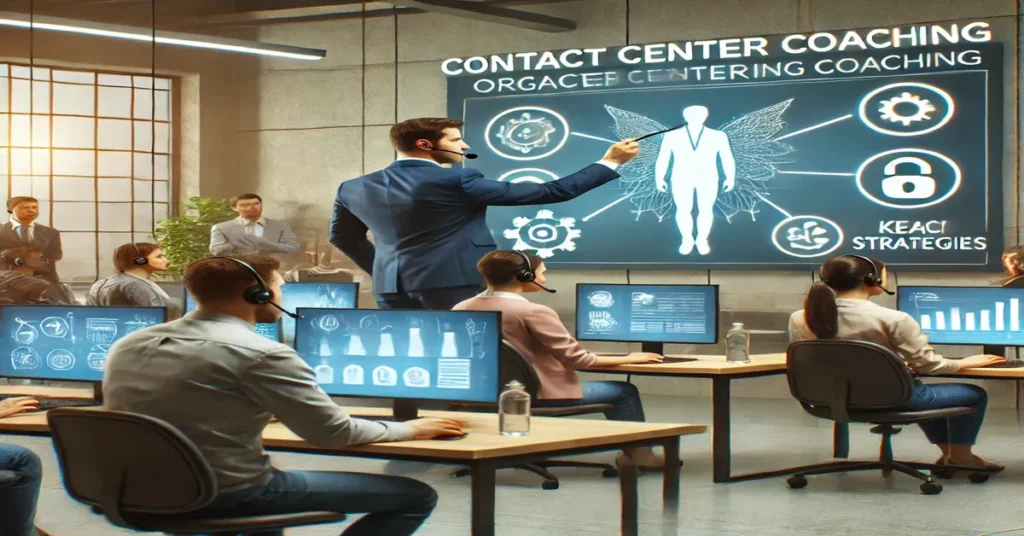In a contact center, the performance of agents plays a crucial role in shaping the overall customer experience. A well-coached team is more likely to resolve issues effectively, provide exceptional customer service, and contribute to the company’s bottom line. However, coaching isn’t just about providing feedback; it’s about developing a continuous improvement culture that supports agents in enhancing their skills over time. In this post, we’ll dive into some of the most effective Contact Center Coaching Techniques that can help boost agent performance, improve customer satisfaction, and reduce turnover.
Why Coaching is Crucial for Contact Center Success
Effective coaching directly impacts several aspects of a contact center’s success, especially agent performance. Regular coaching helps agents improve their skills, from handling customer queries more efficiently to managing difficult situations with empathy and professionalism. As agents gain confidence and competence, they’re able to deliver better service, leading to higher customer satisfaction rates.
Additionally, a well-coached team tends to have lower turnover rates. Employees who feel supported and valued through coaching are more likely to stay with the company, reducing recruitment and training costs. Coaching also plays a vital role in helping agents advance in their careers, fostering a sense of loyalty and commitment to the organization.
Key Coaching Techniques for Improving Agent Performance
To drive results, coaching must be strategic and tailored to individual agents’ needs. Here are several proven techniques that can elevate agent performance in a contact center:
1. Regular One-on-One Coaching Sessions
One-on-one coaching is essential for providing personalized feedback. These sessions allow managers to discuss an agent’s strengths and areas for improvement in a focused, private setting. By setting clear goals and offering constructive feedback, managers can guide agents toward higher performance. These sessions should be consistent, providing agents with continuous support and clear development paths.
2. Active Listening and Empathy
In contact centers, agents deal with customers who often feel frustrated or upset. Coaching agents to listen actively and respond with empathy is critical. Active listening helps agents fully understand customer issues, leading to more effective solutions. Empathy, on the other hand, fosters a positive interaction, showing customers that their concerns are heard and valued. Coaches should regularly emphasize these skills, demonstrating their importance not just for customer satisfaction but also for agent job fulfillment.
3. Real-Time Feedback and Support
Providing real-time feedback is one of the most effective ways to ensure that agents stay on track and correct issues as they arise. By listening to calls or monitoring chats, coaches can offer immediate guidance on how to improve performance. Real-time feedback helps agents correct mistakes quickly, preventing small errors from snowballing into bigger problems. It also ensures agents feel supported in the moment, reducing stress and enhancing their confidence.
4. Role-Playing and Scenario-Based Training
Role-playing exercises are invaluable for preparing agents for real-world interactions. These exercises allow agents to practice handling various customer scenarios, from routine inquiries to complex complaints. By simulating these situations, coaches can help agents build problem-solving skills and better manage stress. Additionally, scenario-based training enables agents to practice using new techniques in a safe, controlled environment before applying them in live situations.
5. Peer Coaching and Team Collaboration
Peer coaching is a powerful tool for improving agent performance. When agents share knowledge and support one another, they learn from different perspectives and grow together. Encouraging collaboration and knowledge-sharing fosters a team-oriented environment, where agents feel more comfortable seeking help and learning from their colleagues. This approach also empowers top performers to share their strategies with others, boosting overall team performance.
Measuring the Effectiveness of Coaching
To ensure that coaching efforts are yielding results, contact centers need to measure performance regularly. Key performance indicators (KPIs) such as customer satisfaction scores, average handle time, first-call resolution rate, and agent productivity are all important metrics to track. These metrics can help determine whether the coaching strategies are effective or if adjustments are needed.
In addition to performance data, obtaining feedback from agents is equally important. Agents’ self-assessments and feedback on coaching sessions provide valuable insights into how well the coaching methods are working. Continuous assessment allows coaches to refine their techniques, ensuring they align with both individual agent goals and organizational objectives.
Creating a Coaching Culture in Your Contact Center
Building a culture of coaching within your contact center is essential for long-term success. Creating an environment where agents feel comfortable receiving feedback and seeking guidance will foster a more engaged and motivated team. It’s important that coaching isn’t seen as a one-time event, but rather an ongoing process that contributes to career development.
Training managers and team leaders to be effective coaches is key to establishing this culture. Coaches should be equipped with strong leadership, communication, and empathy skills. By ensuring that coaches are trained to provide constructive feedback and support, organizations can ensure their coaching efforts lead to lasting improvements.
Conclusion
Effective Contact Center Coaching Techniques are essential for enhancing agent performance and delivering exceptional customer service. By implementing strategies such as regular one-on-one sessions, real-time feedback, role-playing, and peer coaching, contact centers can create an environment that supports continuous learning and improvement. When coaching is integrated into the day-to-day operations of a contact center, it becomes a powerful tool for increasing employee engagement, boosting performance, and improving overall customer satisfaction.
Incorporating these techniques into your coaching strategy will help you build a stronger, more skilled team ready to tackle the challenges of modern customer service.







